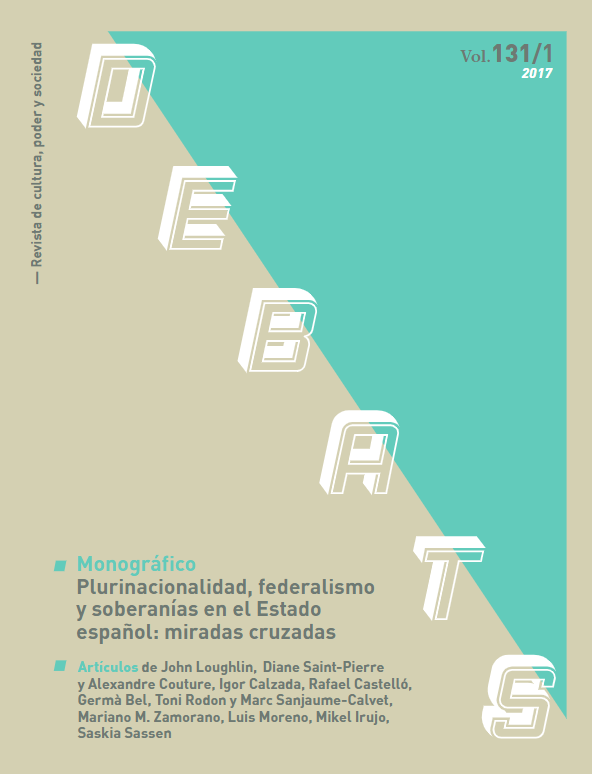Plurinational reality of the Spanish state and the role of the sub-state level entities in the European context
Abstract
There is much debate about the plurinationality of the Spanish State, but perhaps not so much about the concept of «Spain». The difference between being a state and being a stateless nation is that, the former, should not question identity models. International recognition gives the States a determined color on a map and a nationality for citizens, which prevents a large part of its population
from asking questions such as, what is its nation, who is part of it or why are they emotionally linked to it. Semantics are important, and the concept of nation can be interpreted very differently in different territories of the Spanish State. The understanding by all parties of what they all understand by nation, country or state, may be one of the keys that can open an opportunity for mutual understanding from which a serene and democratic debate can take place on concepts such as Multi-nationality or the right to decide. In turn, in the
21st century, all these concepts are in constant debate in different States of the European Union, so that the debate on the fitting from stateless nations in the EU, or even the fitting of the right to decide in the European framework, should also be taken into account.
Downloads
Downloads
Published
How to Cite
Issue
Section
License
Without prejudice to the provisions of article 52 of Spanish Law 22/1987 of November 11 on Intellectual Property, BOE (official state bulletin) of November 17, 1987, and pursuant to said legislation, the author(s) surrender(s) free of charge its rights of edition, publication, distribution and sale of the article, for its publication in Debats. Journal on Culture, Power and Society.
Debats. Journal on Culture, Power and Society is published under the Creative Commons license system in accordance with the «Recognition - Non-Commercial (by-nc) modality: The generation of derivative works is permitted provided that commercial use is not made. Nor can the original work be used for commercial purposes».
Thus, when the author submits his/her contribution, he/she explicitly accepts this assignment of publishing and publishing rights. Authors also authorize Debats. Journal on Culture, Power and Society to include their work in an issue of the journal to be distributed and sold.











